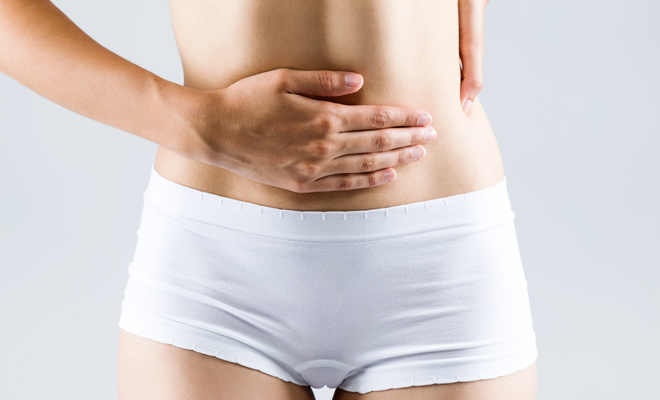Do you feel very heavy every day and want to know how to deflate your belly? The first thing is to analyze how your day to day is. You should ask yourself if they are excessively hectic and stressed and how is your diet. If you eat breakfast so quickly in the morning that you can hardly enjoy a hot coffee; later, at lunch, you don’t even get up from your seat and eat a sandwich in front of the computer; Not to mention that the only sport you do is run from the office to your children’s school to end up in the supermarket, buying a pre-cooked dish for dinner, because you don’t have time to put on your apron. Maybe you’re the “too busy” type of woman to eat healthy or maybe it’s just a matter of changing and modifying habits and routines.

Objective: eat better, deflate the belly and feel light
Do you want to end all this and start feeling good? Slow down a bit from your day to day and rediscover the pleasure of eating and living better! From Manzanaroja, your personalized diet, they have prepared a decalogue with healthy habits to follow to deflate the belly and feel light.
-
Take the time to eat healthy
Nutritional deficiencies, a diet too high in fat and salt, an excess of convenience products to the detriment of fresh and genuine foods cause inflammation and swelling. To feel good and deflate your belly, it is important that you change your priorities: eating healthy and following a varied and complete diet is a matter of time, so try to find it!
-
Eat slowly and chew well
“The first digestion takes place in the mouth.” How many times, when you were a child, did your mother repeat this phrase to remind you to chew well? And she was right! Often the bloating and heaviness that you feel at the end of the meal is caused by the fact that you eat on the run. If you eat too fast, you don’t chew your food properly. You risk swallowing too much air and face digestive problems. Eat slow On the contrary, it helps digestion, because the well-mashed morsel is more easily attacked by the gastric juices, which can thus better break down the ingested food. Also, if you eat slowly, you assimilate nutrients better and give your brain time to receive the satiety signal from the stomach. The result? You don’t risk gulping down more food and calories than you need and you don’t feel heavy at the end of a meal.
-
Always eat 5 meals a day
When you live in a hurry, the temptation to skip meals due to lack of time is very strong. If you are wondering how to deflate your stomach, you should know that there is nothing more wrong than skipping meals, because in addition to subjecting the body to stress and depriving it of the energy and nutrients it needs, you run the risk of arriving hungry at the next meal and eating food too fast and in excessive amounts compared to your needs.
-
Take probiotics
Inflammation, heaviness or slow digestion are signs of an alteration in your intestinal flora, which has lost its natural defenses, probiotics. These microorganisms, capable of resisting gastric acid and bile, of adhering to cells, of producing bactericidal substances and of colonizing the intestine, can modulate the balance of intestinal bacterial flora and improve the immune system. For example, eating yogurt a day is a healthy habit that helps you preserve the balance of your intestinal flora, giving your stomach well-being and lightness.
-
Join the products with fiber
A somewhat sluggish bowel can cause inflammation and discomfort. If you want to know how to deflate your belly, start with taking fibers, which promote digestion and intestinal transit, and help you regain regularity and combat the feeling of inflammation, which is often a consequence of constipation. That is why cereals, but also vegetables such as artichokes (which contain both soluble and insoluble fibers), cabbage and carrots, fruits (especially apples, pears and kiwis) and legumes must be present in your daily diet. 5 servings of fruits and vegetables a day, for example, assures you 25 grams of fiber, the recommended daily dose.
-
Don’t forget the legumes
Legumes are an ally to counteract intestinal laziness because, thanks to the cellulose they contain, they favor the elimination of waste through feces. That is why they represent an important food to include in your diet and recover well-being, regularity and to show off a flat stomach.
Is it hard for you to digest them and do you feel a little bloated after eating them? It happens because, like potatoes and cabbage, they are made up of carbohydrates that tend to ferment in the intestine and therefore, in some people, can promote gas production. In these cases, it is advisable to gradually introduce them into your diet and consume them in moderate amounts.
-
Drink a lot of water
During the day you are so busy that you forget to drink and at night you feel exhausted and heavy. It happens because you are depriving your body of an essential element for its proper functioning. In fact, it is precisely water that allows soluble fibers to perform their function: when absorbed, they tend to swell, press on the intestinal walls and promote transit speed. If, on the contrary, you do not drink enough, intestinal functions and also the assimilation of nutrients decrease. In addition, the water has a diuretic and purifying effect, it helps to eliminate toxins and combat retention, so it is doubly useful to counteract the feeling of inflammation and heaviness.
-
Away with gum and fizzy drinks
Gum and carbonated drinks, including sparkling water, are not very good for your stomach’s health. The former because they cause more air intake and the latter because carbon dioxide is added to them, which can contribute to making your abdomen “bloated”, giving you a nasty bloated belly, so it’s best to avoid them!
-
Cleanse yourself with an herbal tea
Teas are doubly useful. If you are a person who does not like to drink water, they are the perfect alternative to stay hydrated, even more so, if you choose herbal teas with a digestive, draining and purifying effect, which can help reduce stomach inflammation and give you a flatter stomach.
-
Get rid of laziness and get moving!
Playing sports contributes to your general well-being: it tones, relaxes muscles and joints and also helps you to have better digestion. If you are lazy, in fact, even your intestine becomes lazy and it is easy for constipation and inflammation to appear. To stay active, it doesn’t take as much time as you think, 30 minutes of sports a day or a brisk walk are enough to get you back in shape!
